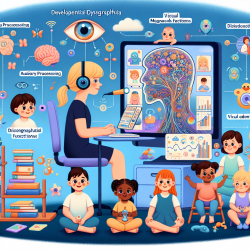Introduction
In recent years, the educational landscape has increasingly recognized the importance of addressing the holistic development of children, encompassing social, emotional, academic, and physical aspects. A recent study titled Choose Your Own Adventure: Promoting Social and Emotional Development Through Outdoor Learning explores how outdoor learning (OL) can serve as a promising context to enhance social and emotional learning (SEL) in primary education settings.
The Benefits of Outdoor Learning
Research indicates that outdoor learning provides a unique environment that fosters students' social and emotional development. The unstructured and emergent nature of OL allows students to explore their interests, develop self-efficacy, and cultivate a growth mindset. Educators have observed that OL encourages students to take risks, manage emotions, and engage in self-directed learning.
Through focus group interviews with 36 Canadian primary school educators, the study identified several themes highlighting the benefits of OL. These include:
- Learning about oneself: Students develop interests, experience self-efficacy, and adopt a growth mindset.
- Managing oneself: Opportunities for personal and collective agency, stress management, and self-discipline.
- Learning about and caring for others: Taking others' perspectives, connecting to place, and showing care and concern.
- Getting along with others: Developing positive relationships, working collaboratively, and resolving conflicts constructively.
- Evaluating one's impact: Considering consequences and promoting environmental well-being.
Implications for Educators
The findings suggest that educators can leverage the outdoor learning context to integrate SEL more deeply into their teaching practices. By providing students with autonomy and agency in an outdoor setting, educators can foster a more culturally relevant and sustaining SEL experience. This approach not only supports students' social and emotional development but also aligns with the Collaborative for Academic and Social and Emotional Learning (CASEL) framework.
Educators are encouraged to explore professional development opportunities that enhance their knowledge and skills in both SEL and OL. This dual focus will better position educators to promote SEL through OL, thereby addressing the growing mandates to incorporate SEL into school curricula.
Conclusion
Outdoor learning presents a promising avenue for promoting social and emotional learning in primary education. By integrating SEL into the OL context, educators can support students' holistic development, fostering skills that contribute to their overall well-being and success. To delve deeper into the research and findings, educators and practitioners are encouraged to read the original research paper: Choose Your Own Adventure: Promoting Social and Emotional Development Through Outdoor Learning.










